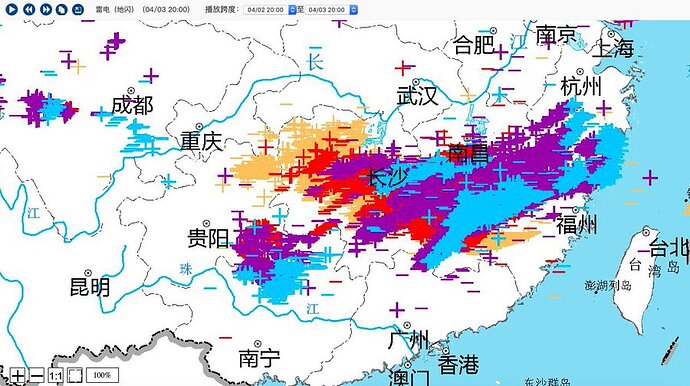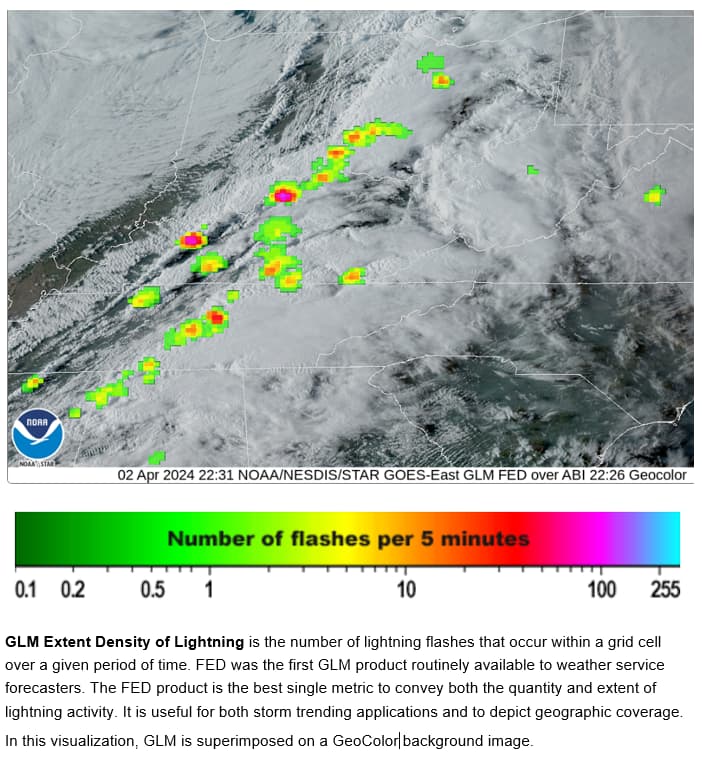https://tsunami.gov/events/PHEB/2024/04/02/24094050/3/WEPA40/WEPA40.txt
“Coincidentally” S China across the strait from Taiwan has been experiencing very extreme weather for the past week. Jim Yang who provides updates on extreme weather events in China posted on X the following today
Southern China has observed more than 150,000 lightning strikes in 24 hours for the fifth consecutive day, and a total of 910,000 lightning strikes were recorded in the past week.
](https://twitter.com/yangyubin1998/status/1775517471241605341/photo/1)
Yang has also reported on a violent storm in Jiangxi on April 2. Jiangxi is a inland province in S China neighbouring Fujian on the coast which faces Taiwan
This afternoon, Jiangxi was hit by thunderstorms and strong winds for the third consecutive day, with gusts exceeding 40m/s! The window of Jiangxi Normal University was blown out!
My speculation on lightning strike density in general, is that affected air masses are being greatly bombarded by some unnatural source of energy. Something is repeatedly creating clusters of highly charged particles that despite frequent discharging (lightning) charge right back up again in the immediate vicinity. Of course that happens in nature, but is it natural for it occur with such frequency, density and duration? It would be interesting to know the ratio of discharges within the cloud to discharges with the earth there in China.
The image below is from the midwestern storms yesterday (April 2, 2024). My eye is automatically drawn to the linear flash patterns, as they “coincidentally” align with the rapidly rising “enhanced-V” cloud plumes. You can’t squeeze blood from a turnip. Those ascending air masses need natural heat from below or unnatural heat from within (not to mention ample supply of water molecules). I’ve seen enough enhanced-V cloud plumes formed over smooth and homogenous ocean surfaces to convince me that heat is being added to accelerate nucleation; frequent lightning is the by-product.
As for China, that is indeed quite a storm system. I don’t watch the eastern hemisphere, so it has been interesting to learn. Thank you.


